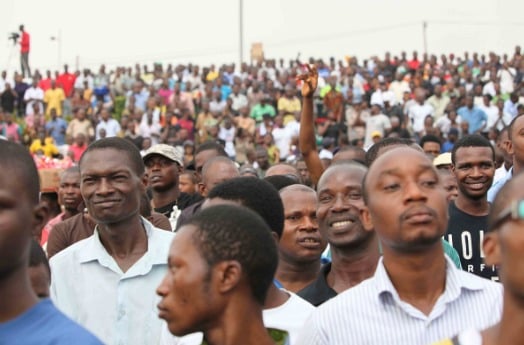Nigeria, once heralded as the “Giant of Africa,” now finds itself ensnared in a web of governance failures, systemic corruption, and a political elite more invested in self-preservation than national progress. This tragic paradox is starkly highlighted when juxtaposed against the trajectories of nations like Malaysia and South Korea. At the dawn of independence in 1960, Nigeria’s per capita GDP was on par with these countries. Today, while Malaysia and South Korea have ascended to high-income status, Nigeria remains mired in economic stagnation, a testament to squandered opportunities and mismanagement.
The Africa Gap: Nigeria’s Stark Illustration
The term “Africa Gap,” recently examined by The Economist, encapsulates the continent’s economic stagnation. Nigeria exemplifies this gap, where immense natural resources contrast sharply with the populace’s impoverished living standards. The nation’s over-reliance on oil has stifled diversification, leaving it vulnerable to global market fluctuations. In contrast, nations like Malaysia have diversified their economies, reducing dependence on single-resource exports and
Economic Reforms: Promises Unfulfilled
President Bola Ahmed Tinubu’s administration introduced economic reforms, notably the removal of fuel subsidies and the unification of exchange rates, aiming to stabilize the economy. However, these measures have precipitated severe consequences. Inflation surged from 22.2% to 34.8%, exacerbating the cost of living and plunging more Nigerians into poverty. The anticipated benefits of these reforms remain elusive, overshadowed by the immediate hardships they have imposed.
Governance: The Root of the Malaise
Nigeria’s plight is fundamentally a governance crisis. The political landscape is dominated by an elite entrenched in a cycle of patronage and rent-seeking, prioritizing personal gain over national interest. This self-serving leadership has perpetuated policies that stifle innovation and economic diversification, ensuring the nation’s continued dependence on oil. The lack of transparency in managing public funds, such as the ambiguous allocation of savings from subsidy removals, further erodes public trust.
Currency and Debt: Mismanagement and Its Fallout
The Nigerian naira’s instability reflects deeper economic mismanagement. Despite recent investor interest due to high yields on local bonds, the underlying economic fundamentals remain weak. Foreign reserves are dwindling, and the government’s reactive policies fail to address structural issues like over-reliance on imports and an unfriendly investment climate. This precarious situation deters sustainable foreign investment and hampers long-term economic growth.
Leadership Detachment: A Disconnect from Reality
Nigeria’s leadership often appears detached from the daily struggles of its citizens. Lavish expenditures, such as the acquisition of a presidential jet amidst economic hardship, highlight a disconnect that breeds public resentment. While leaders seek medical treatments abroad, domestic healthcare systems languish, reflecting misplaced priorities and a lack of commitment to domestic development.
Demographic Time Bomb: An Urgent Call for Action
With projections indicating Nigeria’s population will surpass 400 million by 2050, the absence of coherent strategies for job creation, industrialization, and human capital development is alarming. The burgeoning youth population, facing limited opportunities, increasingly views migration as the sole path to prosperity. This demographic trend, if unaddressed, threatens social stability and economic viability.
The Path Forward: Beyond Rhetoric to Action
Nigeria’s potential remains vast, but realizing it necessitates a political revolution that dismantles entrenched elites and fosters accountability. Drawing lessons from countries like South Korea, which transformed through strategic industrial policies and governance reforms, Nigeria must prioritize inclusive economic policies, invest in infrastructure, and cultivate a culture of transparency.
The imperative is clear: break the cycle of decline through decisive, inclusive, and transparent governance. The stakes are high, and the time for transformative action is now.




